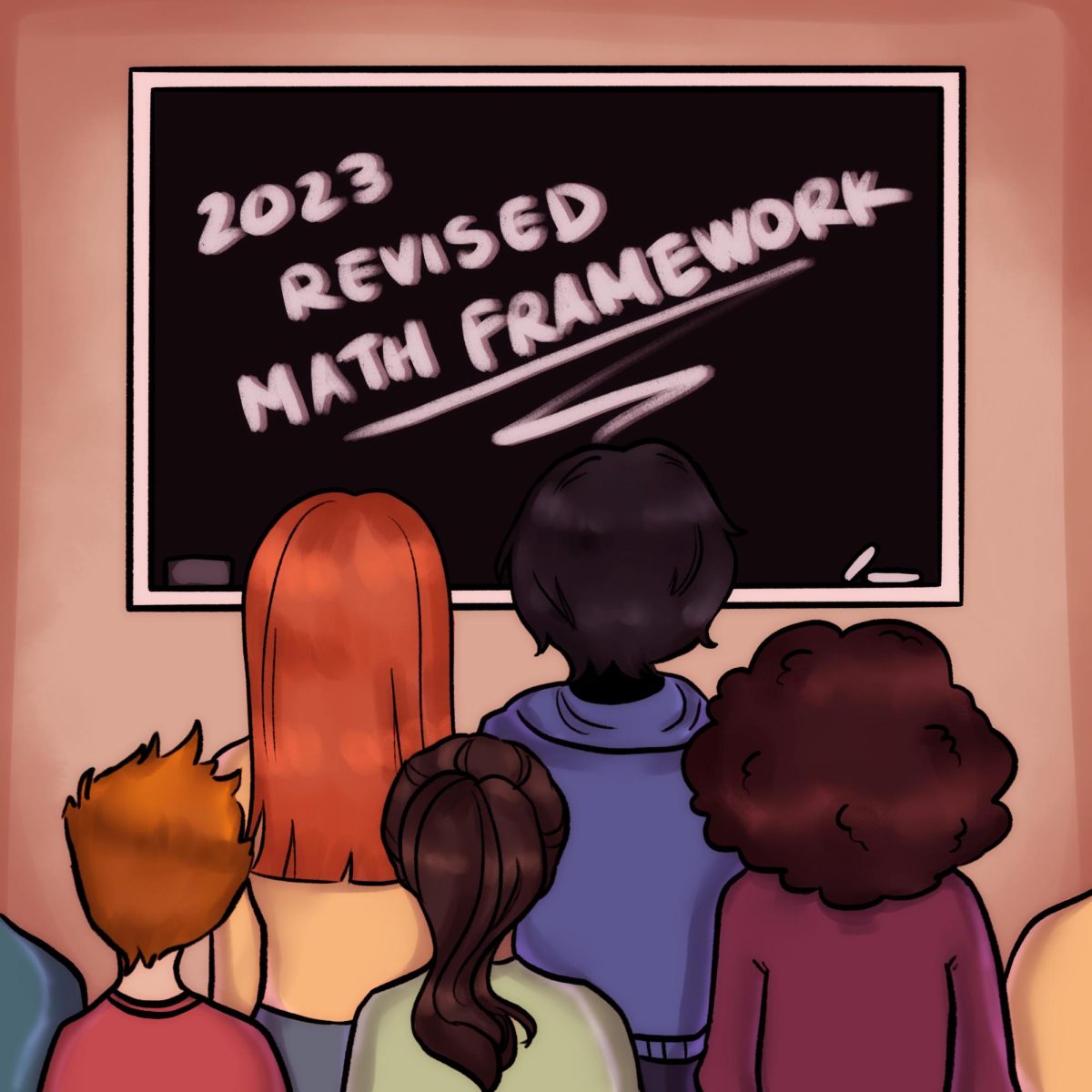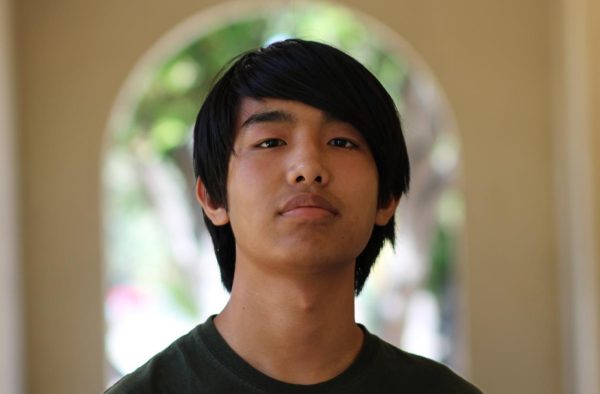The 2023 California Revised Math Framework, passed in July by the State Board of Education, introduced several changes to mathematics education in schools throughout the state.
The framework includes a focus on inquiry-based education, big ideas, equity, reordering when topics are taught, and expanding math education. Despite controversy surrounding the Framework, Gunn math instructional leader David Deggeller said schools in the district have begun implementing elements of the Framework into the curriculum.
“Many things in the framework we are already doing at Gunn, and others have a 0% chance of ever being implemented,” Deggeller said. “Many have misconceptions about the new framework, as it’s just a set of suggestions, not a mandate.”
Deggeller also said the math department has added suggested content to some of their courses with more to come.
“The emphasis on data science and Inquiry learning is already happening here,” Deggeller said. “Many teachers have implemented inquiry into their lessons in an effort to build thinking classrooms, and the results have been very encouraging.”
As far as what Gunn isn’t doing, Deggeller said the Frameworks’ recommendation about Algebra likely won’t be implemented at PAUSD.
“The framework’s suggestion that all students wait until 9th grade to take Algebra is not something that will ever happen here,” Deggeller said. “Also, their suggestion to eliminate lanes in the high schools is not being considered, though the middle schools did eliminate lanes, and Gunn and Paly eliminated Geo A this year.”
Paly Calculus teacher Zachary Barnes said he sees benefits in much of the Framework’s approach to teaching.
“From what I understand, the new framework is reorganizing the standards that were already there into what they are calling Big Ideas to help students connect the mathematics and create an inquiry-based math learning experience for all kids,” Barnes said. “I like the push to this –– every child needs a strong sense of problem-solving because everyone has and will have problems to solve.”
Barnes said using Framework suggestions, he plans to incorporate inquiry-based methods to enhance complex calculus concepts.
“Learning happens when students are invested and that starts with curiosity,” Barnes said. “A more standardized approach to this is welcome in our classroom. I look forward to seeing the ideas and the structures that can happen in the classroom.”
Senior Hope Van Riesen said many of the Framework’s guidelines are a step in the right direction, especially those promoting equity.
“I think allowing people to specialize in different types of math that they are interested in would make their classes more enjoyable overall,” Riesen said. “I also think it would be a good idea to implement more of the guidelines, especially eliminating math lanes.”
Deggeller said the Framework will likely change standardized testing.
“This will obviously reshape the CAASPP test and help us make any needed adjustments to our classes,” Deggeller said. “But I don’t imagine this having much of an effect on our honors lane though, as the curriculum for AB and BC Calculus is not changing as far as I know.”
The framework’s focus on equity in math education is especially relevant.
“It is important for educators to open doors to all students to take calculus in high school,” Barnes said. “While everybody might not elect to do so, I would measure our success by the number of students who enter and find success in our classroom, especially because equity is a big part of this.”
Riesen said the current problem she sees is that at Paly many math lanes, with their academic rigor, can separate students and categorize people based on their lanes.
“I think it causes people to think they are worse than they are, and it also puts labels on people based on their lane,” Riesen said. “I think for some people, not everyone, but like me, for example, I felt confined by my lane, and I think others would agree that lanes feel like rigid lines, even though they aren’t intended to be rigid.”
Deggeller said he expects the next focus of the Gunn math department will be centered around teaching math with more relevant, real-world applications.
“The release of the Framework itself has not resulted in any immediate changes nor will it do so anytime soon,” Deggeller said. “I would imagine some next steps being focusing on the framework’s emphasis on Big Ideas and what we really want all students to leave high school knowing.”
Assistant Superintendent Guillermo Lopez did not respond to an interview request for this story.




